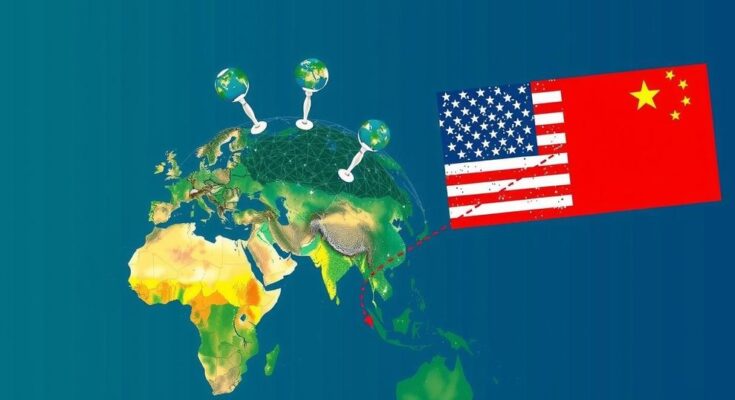Former White House advisor Robert McNally predicts Trump 2.0 policies aimed at avoiding military conflict with Iran, responding to China assertively, and dismantling U.S. climate initiatives. McNally suggests these moves could potentially yield positive outcomes despite concerns about environmental impacts.
Robert McNally, a former advisor in the White House, articulated a perspective on the anticipated policies under a potential Trump administration, termed “Trump 2.0.” He emphasized that Trump aims to prevent military conflict with Iran through a strategy of maximum economic pressure, while simultaneously addressing challenges posed by China. Additionally, McNally highlighted Trump’s intention to dismantle existing climate policies in the United States, asserting that these disruptions could yield beneficial outcomes. McNally’s observations reflect a broader strategic positioning that aligns with Trump’s historical approach. From McNally’s viewpoint, the anticipated shift in foreign policy towards Iran will focus on leveraging economic sanctions rather than engaging militarily, which could stabilize U.S. interests in the region. Furthermore, McNally insinuated that the unraveling of climate initiatives could lead to favorable economic implications, despite potential environmental drawbacks. His comments, delivered during a briefing in the Middle East, suggest a keen awareness of the geopolitical and economic dynamics at play but also provoke critical considerations regarding environmental impacts and diplomatic relations.
The discussion about Trump 2.0 arises amidst a shifting political landscape in the United States. The former President Donald Trump is anticipated to re-emerge in domestic and foreign policy arenas should he seek election once again. His historical approach has often emphasized an isolationist stance, particularly regarding international conflicts and climate diplomacy. The implications of such an agenda could significantly alter U.S. relationships with key global players such as Iran and China, while impacting environmental policy reforms currently in place. McNally’s insights are essential for understanding how a potential return to power for Trump could reshape strategic priorities on the international stage.
In conclusion, Robert McNally’s insights into the potential implications of a renewed Trump administration indicate a strategic pivot towards maximum pressure on Iran and a combative stance on China, alongside a significant contraction of U.S. climate policy. While the assertion of avoiding military conflict is promising, the ramifications of dismantling climate initiatives warrant concern regarding long-term environmental and diplomatic health. The nuanced interplay between these various strategies will be critical in defining future U.S. domestic and foreign policy.
Original Source: www.upstreamonline.com




